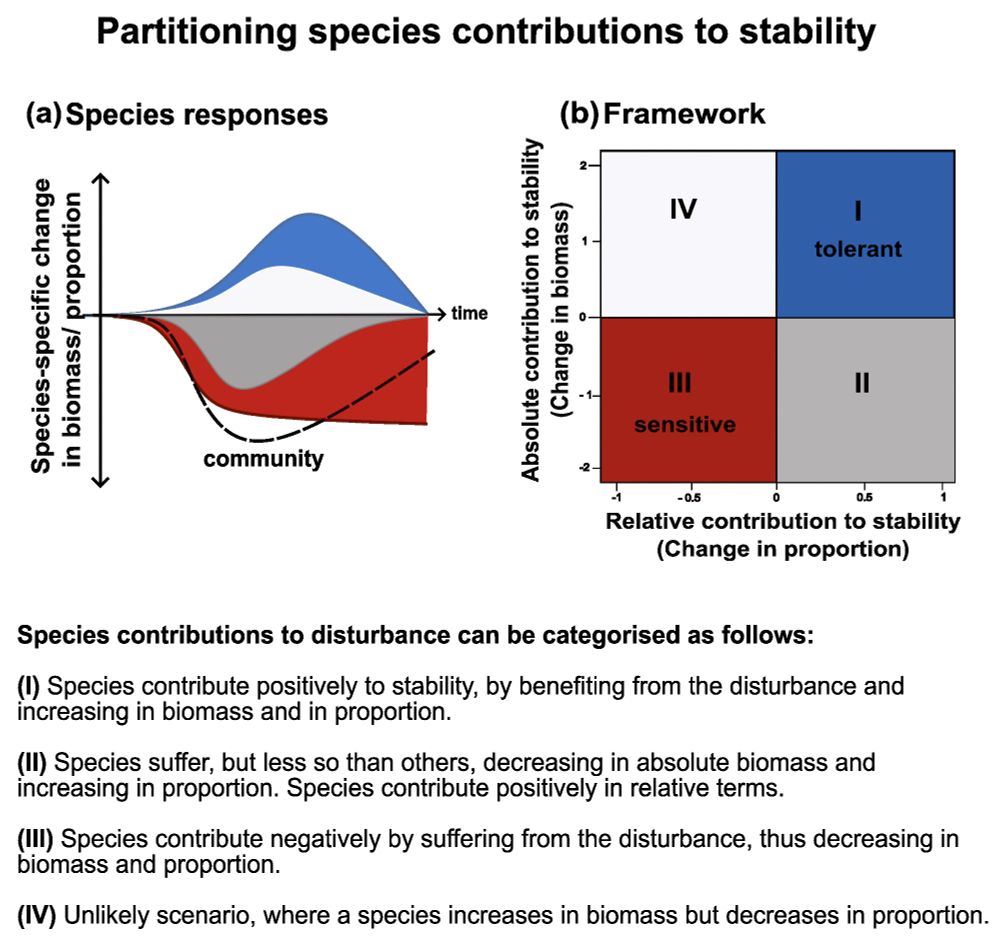PostDoc at the University of Zurich.
Passionate about ecological stability, environmental change, community ecology, food web, but also climbing, mountaineering, ski touring, (gravel)biking.
Madrid Institute for Advanced Studies; University of Trieste; Universidad de Alcalá; University of Zurich; Leibniz Institute of Freshwater Ecology and Inland Fisheries • Environmental Toxicology and Ecotoxicology, Isotope Analysis in Ecology, Aquatic Ecosystems and Phytoplankton Dynamics
If you’re attending #BES2025, join us for an engaging conversation about biodiversity and stability!
🕒 Time: 15:00 – 17:00
📍 Location: Edinburgh
This session will bring together many members of the Response Diversity Network to explore how response diversity shapes ecosystem resilience across scales.
@ckunze.bsky.social and I will be co-chairing the thematic session entitled “Insurance in ecosystems: exploring the role of response diversity across scales”.
Reposted by Pavel Kratina, Francesco Polazzo

With: Til Hämmig, @owpet.bsky.social & @pennekampster.bsky.social
This suggests that in our system species’ fundamental responses (measured in monocultures) determine stability, not interactions.
A new metric—imbalance—captures how unevenly species respond to the environment.
→ Lower imbalance = higher community stability
→ Richness alone had no effect!
🔬 Using protist microcosms, we manipulated:
🌡️ Temperature fluctuations
🧪 Nutrient levels
🌱 Species richness
📈 Distribution of species’ thermal performance curves
Reposted by Benjamin Wildermuth

“The Imbalance of Nature: The Role of Species Environmental Responses for Community Stability”
📖 Read it here: onlinelibrary.wiley.com/doi/10.1111/...
We tried to answer the question: What drives community stability in fluctuating environments?
Reposted by Francesco Polazzo
@pennekampster.bsky.social @fancescopolazzo.bsky.social
thetrophiclink.org/posts/2025-0...
Reposted by Francesco Polazzo

I am looking for a PhD student to work on the project "A mechanistic theory of functional responses: zooming into movement behaviour to understand and predict predator-prey interactions"
euraxess.ec.europa.eu/jobs/342402.
Reposted by Francesco Polazzo
Reposted by Francesco Polazzo

"Linear functional ecology: Rethinking species contributions to ecosystem functions"
Zoom link via rb.gy/3pf8dh
Reposted by Francesco Polazzo

www.freetagliamento.org/it_IT/home-e...
Reposted by Anne Ebeling, Pol Capdevila, Francesco Polazzo

We introduce a framework on how to partition species contributions to ecological stability in disturbed communities based on species absolute change in biomass and relative change in proportion.

onlinelibrary.wiley.com/doi/10.1111/...
Have a look at our new proposed way of calculating response diversity when multiple environmental drivers change simultaneously.

